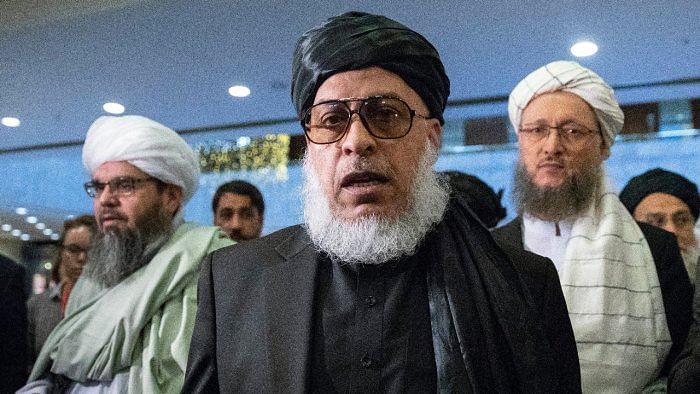
Prime Minister Narendra Modi’s government on Tuesday for the first time publicly acknowledged its engagement with the Taliban as New Delhi’s envoy to Doha had a meeting with a top leader of the militant organisation that recently took back control over almost the entire Afghanistan.
New Delhi’s envoy to Doha, Deepak Mittal, had a meeting with Sher Mohammad Abbas Stanekzai, the head of the Taliban’s political office in the capital of Qatar. The meeting took place at the Embassy of India in Doha on Tuesday – just hours after the United States flew out its last remaining soldiers from the Hamid Karzai International Airport in Kabul and, thus, formally ended its two-decade-long military presence in Afghanistan.
The last public engagement between the Government of India and the Taliban had taken place in December 1999. The then External Affairs Minister Jaswant Singh had a meeting with the Taliban Government’s Foreign Minister Wakil Ahmed Muttawakil at the airport in Kandahar in southern Afghanistan and handed over to him Jaish-e-Mohammad chief Masood Azhar and two other terrorists, whom Prime Minister A B Vajpayee’s government had set free from prison to secure the release of the crew and the passengers of the hijacked Indian Airlines flight IC-814. The Taliban had later facilitated the safe return of the hijackers and the freed terrorists from Afghanistan to Pakistan.
Mittal’s meeting with Stanekzai on Tuesday was the first publicly acknowledged engagement between the Government of India and the Taliban in almost 22 years. The Ministry of External Affairs (MEA) issued a press-release in New Delhi, stating that the meeting at the Embassy of India in Doha had taken place at the request of the Taliban. “(The) discussions focused on safety, security and early return of Indian nationals stranded in Afghanistan. The travel of Afghan nationals, especially, minorities, who wish to visit India, also came up,” Arindam Bagchi, the spokesperson of the MEA, said in New Delhi.
New Delhi has been over the past few months having informal back-channel talks with a section of the Taliban, because it anticipated that the militant organisation might return to power after the US and its NATO allies would complete withdrawal of troops from Afghanistan and that Pakistan might exploit the situation to gain a strategic edge against India. The Modi Government in New Delhi has been maintaining that India has been in touch with all stakeholders in Afghanistan, but never specifically acknowledged its engagements with the Taliban.
Mittal conveyed to Stanekzai concerns of New Delhi over the possibility of Pakistan using the territory of Afghanistan against India or to export terror to India. The head of the Taliban’s political office in Doha assured New Delhi’s envoy to Qatar that India’s concerns “would be positively addressed”, according to the MEA press-release issued in New Delhi.
Stanekzai was trained in the Indian Military Academy in Dehradun in Uttarakhand and was among the foreign cadets who passed out of the institution in 1982. He was among the ones who opened the Taliban’s political office in Doha in January 2012 and was appointed as its head in November 2015. With the Taliban’s return to power in Kabul now imminent, speculation is rife about Stanekzai being appointed as the Foreign Minister of the new Government of Afghanistan. He told a TV channel recently that the Taliban wanted to continue Afghanistan’s “cultural, economic, political and trade ties” with India.
New Delhi evacuated its envoy and diplomats from Kabul on August 17, less than 48 hours after the Taliban militants entered the capital city culminating its swift military blitz across Afghanistan as President Ashraf Ghani escaped from the country marking the collapse of his Government. But it did not formally shut down the Embassy of India in Kabul, as it would have meant severance of its diplomatic relations with Afghanistan.
India had shut down the embassy and snapped diplomatic relations with Afghanistan immediately after the Taliban had come to power in Afghanistan in September 1996. The embassy had been reopened in 2001, after the US had launched the military offensives against the Al Qaeda in Afghanistan in response to the 9/11 attacks and the Taliban Government led by Mullah Omar in Kabul had collapsed.
